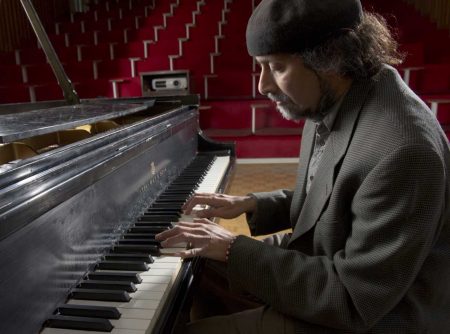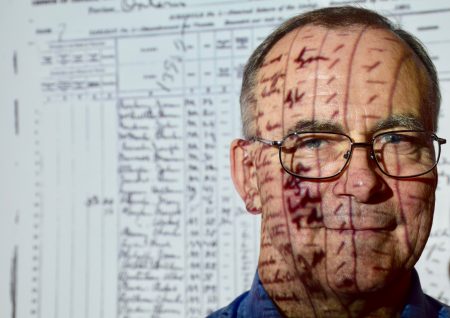
Humanities and social science research at the University of Guelph has received a $3.4-million federal funding boost.
The Canada Foundation for Innovation (CFI) is supporting innovative projects led by English professor Ajay Heble and Prof. Kris Inwood, Department of Economics and Finance and Department of History. Federal Science Minister Kirsty Duncan made the announcement today in Winnipeg.
The funding supports a laboratory for improvisational performance and an integrated database that gives researchers access to the historical records of 32 million Canadians.
The funding comes from CFI’s Innovation Fund for national and international infrastructure projects that are transformative and that support cutting-edge research. In total, CFI will invest more than $554 million in funding for 117 new infrastructure projects at 61 Canadian institutions.
“CFI’s Innovation Fund was created to get universities to think big and to be global leaders, and professors Heble and Inwood are perfect examples of how U of G is doing this,” said Malcolm Campbell, vice-president (research).
“By showing how improvisation can spark community and social change, Professor Heble has helped create a new field of study. And Professor Inwood has fostered interdisciplinary collaboration based on data and information. In both cases, their pioneering innovations are improving life locally, nationally and internationally.”
Lloyd Longfield, MP for Guelph, added: “The innovation agenda of the Government of Canada also spans more than traditional concepts, to include social innovations such as the important work of Dr. Heble and Dr. Inwood at the University of Guelph. Like other branches of research, supporting fundamental science can lead into exciting discoveries that can be applied well beyond the scope of the initial project.”
Heble received $2.03 million to create a global hub for community-engaged performance research and impacts on audience, youth and community.
ImprovLab will be a publicly accessible and flexible space for advanced studies of improvisational artistic practices. With contributions from other public and private partners, funding for the project will exceed $5 million.
“I am so excited to be leveraging this amazing opportunity to build a state-of-the-art, technologically advanced research and performance facility at the heart of our campus,” said Heble, who used earlier federal funding worth $5 million to create the International Institute for Critical Studies in Improvisation at U of G.
“This promises to be a groundbreaking initiative with far-reaching impacts and benefits for the International Institute for Critical Studies in Improvisation, for the University, for our partners and stakeholders, and for the broader arts community.”
The institute uses improvisation as a model for building successful communities, and involves some 60 international scholars from 20 institutions and more than 30 community partners.

Inwood heads a national infrastructure project called The Canadian Peoples (TCP) that includes an integrated series of databases comprising the records of 32 million Canadians.
CFI will contribute $1.465 million in infrastructure support for this project, with $6 million to come from public and private partners, including Ancestry.ca, Canada’s largest genealogical company.
Inwood said TCP will provide unprecedented access to data from six Canadian censuses from 1861-1921, which describe personal, household and community characteristics from before Confederation until after the First World War.
Researchers may use the information to study everything from cultural identity to inequality to youth and aging. Users will be able to reinterpret the experience of Canadians during a formative era, Inwood said.
He said knowledge generated by the project will help policy-makers learn about such topics as immigration, family, health, regional development, urbanization and cultural heterogeneity.
“I am very excited and even a bit scared to be responsible, along with colleagues at eight other universities, to make available these important resources for the next generation of researchers in economics, history, sociology, geography and more,” Inwood said.
“The partnership with Ancestry by itself is a very useful breakthrough for Canadian university-based researchers.”